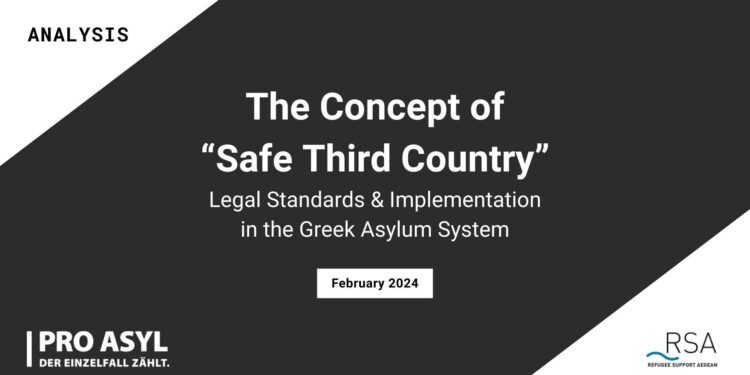The UK government’s controversial plan to relocate asylum seekers to third countries has drawn sharp criticism from Albanian Prime Minister Edi Rama, who described the policy as evidence that Britain is in a “very dark place.” Rama’s remarks come amid growing concern over the UK’s approach to immigration and its impact on vulnerable refugees. The plan, which aims to deter irregular migration by sending asylum seekers to processing centers outside the UK, has sparked intense debate both domestically and internationally, raising questions about the country’s commitment to humanitarian principles.
UK faces international criticism over controversial third-country asylum policy
The Prime Minister of Albania has voiced strong opposition to the UK’s recently proposed asylum strategy, which involves redirecting asylum seekers to third countries. Describing the policy as indicative of the UK being in “a very dark place,” the Albanian leader argued that such measures not only undermine international protection principles but also risk straining diplomatic ties with key partner nations. Critics warn that this approach disregards the humanitarian obligations under international law and could set a worrying precedent for how vulnerable populations are treated globally.
International human rights organizations have joined the chorus of voices condemning the plan, highlighting concerns over the welfare and rights of asylum seekers transferred under such agreements. Key points of contention include:
- Lack of transparency in how third countries are selected and the criteria for asylum processing;
- Potential human rights violations due to insufficient safeguards and support services in recipient nations;
- The undermining of established refugee protection frameworks such as the 1951 Refugee Convention.
| Stakeholder | Primary Concern |
|---|---|
| Albanian PM | Diplomatic friction & ethical implications |
| Human Rights Groups | Possible rights violations & lack of safeguards |
| UK Government | Reducing asylum system burden |
Albanian Prime Minister warns plan undermines human rights and strains diplomatic ties
The Albanian Prime Minister has openly criticized the UK government’s new third-country asylum plan, describing it as a troubling shift that jeopardizes fundamental human rights. He emphasized that the policy not only pits countries against each other but also threatens to erode decades of cooperation in international asylum frameworks. In his statement, he warned that outsourcing asylum processing to nations perceived as less equipped could lead to increased vulnerability and suffering for those seeking refuge.
Highlighting the diplomatic fallout, the Prime Minister pointed out several key concerns:
- Strain on bilateral relations: The plan risks inflaming tensions between the UK and partner countries expected to host asylum seekers.
- Human rights implications: There are fears that relocating asylum processing may result in inadequate protection and oversight.
- Precedent for international policy: The approach could encourage other nations to adopt similar measures, undermining global refugee protocols.
| Aspect | Potential Impact |
|---|---|
| Diplomatic Relations | Fractured trust and cooperation with key allies |
| Human Rights | Increased risk of inadequate asylum protection |
| International Law | Potential weakening of established refugee conventions |
Experts call for urgent review and adoption of more humane immigration strategies
Leading human rights experts have raised serious concerns over the UK government’s proposed third-country asylum plan, warning that it risks undermining international protections for vulnerable refugees. The plan, which involves relocating asylum seekers to countries outside the UK, has been described as both impractical and ethically troubling. Critics argue that such strategies could exacerbate the plight of displaced individuals by exposing them to unsafe environments and eroding Britain’s longstanding commitment to asylum law.
Advocates emphasize the need for comprehensive, humane alternatives and call on policymakers to reconsider current approaches. Among the proposed solutions are:
- Strengthening legal pathways for asylum seekers
- Enhancing support services within the UK
- Collaborating with international partners for fair burden-sharing
- Ensuring robust oversight to prevent human rights violations
| Issue | Potential Impact | Expert Recommendation |
|---|---|---|
| Third-country relocation | Risk of unsafe conditions | Immediate halt and review |
| Reduced legal access | Increased irregular crossings | Expand legal entry routes |
| Lack of oversight | Human rights violations | Establish monitoring frameworks |
Future Outlook
As debates continue over the UK government’s controversial third-country asylum plan, the stark criticism from Albanian Prime Minister Edi Rama underscores the growing international concern surrounding the policy. With refugee protections and diplomatic relations at stake, the unfolding situation marks a critical juncture in the UK’s approach to immigration and asylum-a development that will demand close scrutiny in the weeks and months ahead.
















